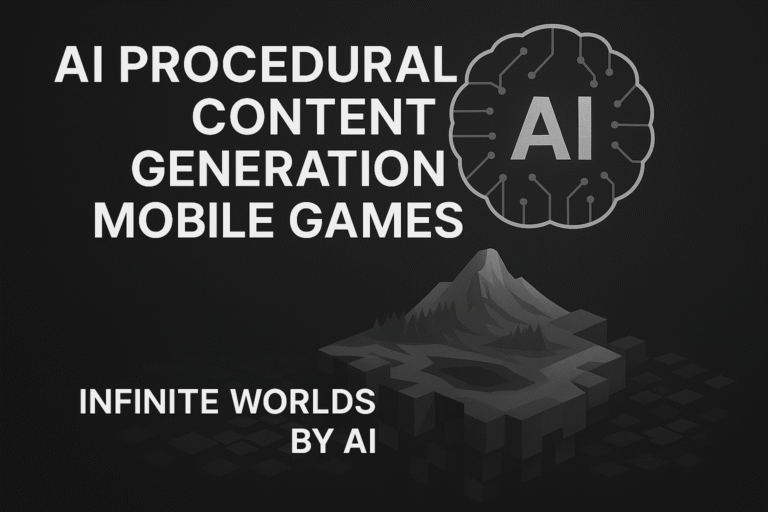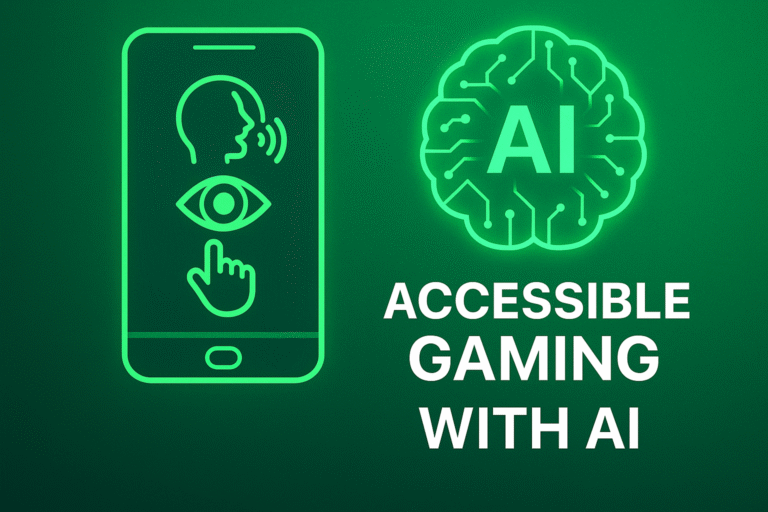
A futuristic AI-powered NPC engages with a player, symbolizing how artificial intelligence is transforming character behavior, interaction, and storytelling in modern video games.
AI NPCs in Gaming are redefining how virtual worlds operate. Gone are the days when non-playable characters merely followed static routines. Today, artificial intelligence empowers NPCs to learn, adapt, and behave dynamically. In 2025, these AI-powered NPCs in gaming are changing not only how we experience video games but also the role of interactive storytelling. In this article, we will explore the evolution, current trends, and future potential of AI NPCs in Gaming.
Table of Contents
- What Are AI NPCs in Gaming?
- How AI NPCs are Revolutionizing Modern Video Games
- Case Studies: Games Leading the Way
- The Future of AI NPCs in Gaming
- Pros and Cons of Smarter NPCs
- Conclusion: The New Era of Gameplay
1. What Are AI NPCs in Gaming?
AI NPCs in Gaming are characters controlled by advanced artificial intelligence systems that go well beyond simple scripted behaviors.
- Traditional vs. AI-Driven NPCs: Traditional NPCs relied on fixed routines and repetitive dialogues. In contrast, AI NPCs in gaming use machine learning to analyze player behavior, adapt strategies, and deliver nuanced interactions.
- Enhanced Realism: With technologies such as Natural Language Processing (NLP), these NPCs can carry out realistic conversations and remember past interactions.
For more detailed background on basic AI concepts in gaming, check out this GeeksforGeeks article on AI in Gaming (DoFollow link).
2. How AI NPCs are Revolutionizing Modern Video Games
The transformation brought by AI NPCs in Gaming includes several groundbreaking improvements:
- Dynamic Reactions:
AI NPCs in gaming can now react dynamically to your every move. Instead of performing rote actions, they:- Analyze player tactics
- Change their behavior during combat
- Adapt dialogue based on previous encounters
- Adaptive Difficulty:
By monitoring your gameplay, AI NPCs in gaming adjust their strategies, ensuring that the challenge level remains engaging, thus personalizing the gaming experience. - Procedural Storytelling:
With AI-driven NPCs, game narratives can evolve in real time. This leads to:
- Unique storylines on each playthrough
- Branching narratives that are influenced by every decision
These developments mark a paradigm shift in how interactive experiences are crafted.
3. Case Studies: Games Leading the Way
Several games in 2025 have emerged as pioneers in implementing AI NPCs in Gaming:
a. GTA VI
- Innovation:
The NPCs in GTA VI now exhibit personalized routines. For example, no two pedestrians behave identically—they react differently to player actions and events, which makes every street encounter unpredictable.
b. Cyberpunk 2077 (AI Update)
- Innovation:
Following its latest update, AI NPCs in gaming have become even more reactive. Gangs and bystanders dynamically alter their strategies based on the reputation and choices of the player.
c. The Elder Scrolls VI (Upcoming)
- Rumors and Expectations:
Leaked information suggests that The Elder Scrolls VI is set to feature a completely procedural world where NPCs evolve over time. These AI NPCs in Gaming could deeply personalize your adventure, with characters that adjust to your actions in ways that were previously unimaginable.
For additional external insight on how AI advances NPC behavior, see this Analytics Insight article on AI NPCs (DoFollow link).
4. The Future of AI NPCs in Gaming
Looking forward, the potential for AI NPCs in Gaming is immense. Future features might include:
- Persistent Memory and Learning:
NPCs that remember your long-term actions and spontaneously alter their behavior, leading to highly dynamic story arcs. - Emotion Simulation:
Future NPCs could simulate emotions relevant to your in-game actions, adding an extra layer of realism. This might enable more authentic alliances, rivalries, and collaborations. - Expanded Procedural Generation:
Imagine a game world where non-playable characters not only adapt but also create new content and side quests. This could ultimately change the standard of storytelling by offering limitless replayability.
5. Pros and Cons of Smarter NPCs
Pros:
- Immersive Experience:
The unpredictability of AI NPCs in gaming fosters a greater sense of realism. - Personalized Gameplay:
Adaptive NPCs can tailor the game’s difficulty and narrative to suit individual styles. - Increased Replay Value:
With dynamic storylines and responses, every playthrough can be unique.
Cons:
- Complexity in Game Balance:
There may be challenges in ensuring that the AI’s adaptiveness does not either trivialize challenges or overwhelm the player. - Resource Intensiveness:
Implementing advanced AI for NPCs can demand more from the system, potentially increasing development costs. - Risk of Over-Predictability:
If not carefully managed, the same AI patterns could eventually be exploited by seasoned players.
For supportive details on balanced game design and AI, visit this GameCloud article (DoFollow link).
6. Conclusion: The New Era of Gameplay
AI NPCs in Gaming are not merely tools—they represent a revolutionary shift that transforms virtual worlds. From adaptive enemies to emotionally resonant allies, these advanced NPCs create experiences that are immersive, unpredictable, and deeply engaging. As developers continue to refine AI technology, players can expect smarter, more lifelike characters that enhance both storytelling and game mechanics.
This new era of AI NPCs in Gaming paves the way for innovative titles that defy traditional gameplay, forging entirely unique experiences every time you play. With every update, the line between reality and the game world blurs just a little more, leading to games that are as challenging as they are captivating.
For more tips on optimizing your gaming experience, check out our internal guide on gameplay optimization strategies (internal DoFollow link).



